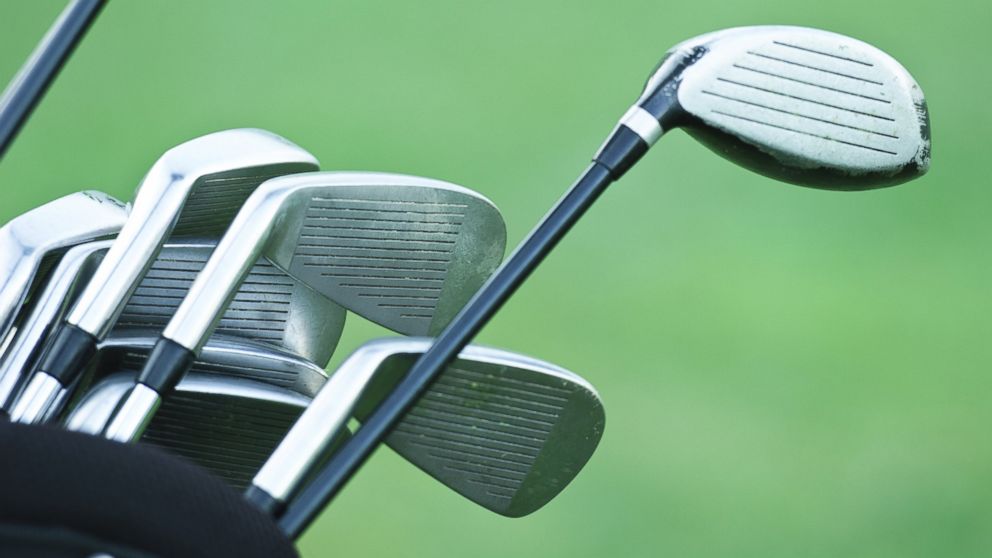Titanium Golf Clubs Can Toss 3,000-Degree Sparks
After golf course fire reports, study finds heat capable of ignition.

March 19, 2014 — -- Sand pits and small ponds apparently aren't the only types of golf hazards. Certain types of clubs can emit sparks if they strike the ground fast enough, potentially causing dry patches of grass and foliage nearby to ignite, researchers at the University of California, Irvine, have found.
Jim Earthman, a professor of materials science who performed the study, said that he was contacted by the university regarding fires on nearby courses.
"Certain golf clubs were causing fires on golf courses in Orange County," he told ABC News. "I play golf occasionally, and I had noticed that with a titanium driver that I could sometimes see very faint sparks when I was striking a tee."
The golf course fires appeared to occur in regions that weren't well irrigated and had rocks and excessive vegetation nearby. Earthman and his colleagues constructed patches of dry land in the lab and found that clubs with titanium in their sole could produce sparks that reached as much as 3,000 degrees Fahrenheit.
"We observed that the sparks could last up to a second," said Earthman. "A lot of sparks are produced and they burn long enough to reach dry foliage and ignite it."
Stainless steel clubs that contained no titanium, on the other hand, did not produce any sparks.
When the titanium club strikes the ground, the fragments that fly off react violently with the oxygen in the air, forming titanium oxide, according to the study.
"It produces a tremendous amount of heat," said Earthman.
The small amount of titanium oxide melts, which allows the reaction to burn even longer, the study found.
There are still some clubs that use titanium but, Earthman said, many manufacturers have switched to other materials.
However, there still are plenty of titanium clubs in use, sold and bought through golf stores that offer secondhand golf clubs.
"This is a particularly dangerous problem in the Southwest, where they don't typically irrigate rough areas and there's not a lot of rain," Earthman said.
The results of Earthman's study are published in the journal Fire and Materials.




